Sunni Rashad
She/They Black Queer writer currently living abroad. Working on games and making art.
Correspondent II
- Plebian Penman
- Common Writer
- Aristocratic Author
- Noble Scribe
- Lurker
- Pssst
- Hand Raiser
- Vocal
- Outspoken
- Extrovert
- Sharp-Eyed Citizen
- Town Watch
- Detective Deskman
- Penman Patrol
- Forensic Fiend
- Strategy
- Actor
- Producer
- Otaku
- 8-bit Hero
- Article of the Month
- ?
- Articles
22 - Featured
14 - Comments
289
- Ext. Comments
124 - Processed
177 - Revisions
140
- Topics
37 - Topics Taken
11 - Notes
43
- Topics Proc.
230 - Topics Rev.
107
- Points
5834 - Rank
10 - Score
4595
Latest Articles
Latest Topics
Super Mario Bros. Z and the cultural impact of crossover in the digital age"Super Mario Bros. Z" (SMBZ), created by Mark Haynes (Alvin-Earthworm), is a fan-made web series that masterfully blends the Super Mario and Sonic the Hedgehog franchises into a dynamic, nostalgic crossover. Initially released on Newgrounds, SMBZ captivated audiences with its complex storytelling, deep character development, and innovative sprite animation, all while navigating intellectual property challenges. This series not only spurred a vibrant fan community but also inspired numerous other fan projects, highlighting the significant impact of fan creativity on the media landscape. Writers can explore the cultural significance and technical achievements of SMBZ, its role in shaping fan-made media, and its enduring legacy in the context of nostalgic reimaginings and crossovers. |
Who's the best Robin?A comparison of characterization, compatibility, and narrative function of the Robins within the Batman and greater DC universe. The writer has five potential options to choose from, Dick Grayson a.k.a Nightwing, Jason Todd a.k.a Red Hood, Tim Drake a.k.a Red Robin, Stephanie Brown a.k.a Spoiler, and Damien Wayne. Each served as Robin for an extended period and all contrast Batman in their own ways. The writer can present a case for and against each of them both from the text and metatexually such as referring to sales or fan receptions.
|
Happiness, a exploration of Nihilism.Happiness is a vampire manga by Shūzō Oshimi. While on the surface it is a supernatural story it delves quite readily into not just other genre conventions such as science fiction body horror and coming of age romance, but examinations on the very concept of humanity, the nature and purpose of suffering and if meaning can ever truly be garnered from horror. The protagonist is spared from death on the whim, his friend and his friend's lover, not to mention her family, are much less fortunate. The protagonist and his love interest are subjected to grotesque trials for 50 years only for them to escape and resolve to live apart from humans, which begs the question, both textually and metatexually, what was the purpose of this?
|
On the character and continuity of SupermanAnalyze the variation versions of some of the mediums' most popular characters and the narrative through lines (canon events) that define the character despite the other notable shifts between the character's developments. A good example of this is the contrast between Communist Superman in Red Son vs. Criminal Ultraman in Justice Lords vs. Tyrant Superman in Injustice vs. All-Star Superman va Mainline Superman. What makes the character the character when a comic's multiverse can extend infinitely? What traits define the character in relationship to their world and their readers?
|
Published | Alienation and Evil in SupermenSuperman is a hero routinely derided as one-note. A good boyscout who is always by the books. For this topic the writer should look into the myriad supermen. Mainly focused on characters such as Man of Steel Superman, One Punch Man's Saitama, and Watchman's Dr. Manhattan. Shared between these characters is a distinct sense of alienation. Not just from their friends but from the people they protect as "heroes" Understanding the origins of each of their alienations and possibly comparing them to "evil" over powered characters such as Plutonian (Irredeemable), Homelander (The Boys) and Omni-Man (Invincible) What elements make for a character's alienation that wouldn't lead into their collapse into villainy?
|
Materialist Hell: What is the ending of the SopranosOne of the most controversial endings in television is the ending of The Sopranos. A jarring cut to blackness and silence. Much can be speculated about the life that Tony has leading to a sudden and violent end vs. the contrasting position of a secularized hell. The core premise is, that Tony is in a constant state of death and undeath as he awaits the ending. The unending pain before it ends is as much of a torture as any demon could imagine putting him through. The writer should probably include a synopsis of the plot of The Sopranos along with other interpretations of the ending.
|
Uncut Gems: A happy ending?Uncut Gems is a Netflix original film about a jeweler Howard Ratner played by Adam Sandler who makes a high-stakes bet that could lead to the windfall of a lifetime but simultaneously could end up in his death. We see throughout the film, Howard takes numerous unnecessary risks as a gambling addict. In the end, even as he wins, he is murdered in cold blood. In a traditional story, this would be a sad ending, a tragedy. But, viewing the film in the modern era, as a tale not about flying too close to the sun and instead about the greatest catharsis, an ultimate victory, and the immediate cessation of future suffering. Howard if he continued living would have inevitably found himself in trouble, his addiction had led him to his death after all, but in the film during his greatest high, he is quickly and painlessly removed from any potential of that feeling to be lost by. He dies with his victory. Is that not a happy ending? |
Whiplash, Black Swan and Tar: the triumvirate of obsessionBlack Swan, the obsession with being the best at the cost of all else. Tar and the abusive teacher Whiplash, the synthesis of obsession and abuse leading to a sort of harmony. The films concern the performing arts in their various forms, each taking a distinct POV. But all of them run a similar line of thought which is "But at what cost" At what cost do we sacrifice our essential being to become, "a great" in Whiplash? Consequently what price is too high for "perfection" in Tar, and who pays when the tab is due? If we aren't our accomplishments, who are we in Black Swan? In a society driven by a consumptive need to be the best, how much is too much to attain it?
|
Latest Comments
| Eugenics in Pop Culture: Madden | |
Sounds interesting ,where can I download it? | Eugenics in Pop Culture: Madden |
Not that I’m aware of. | Eugenics in Pop Culture: Madden |
Skill issue tbh fam. | Eugenics in Pop Culture: Madden |
Thinking about going over some in later articles. | Eugenics in Pop Culture: Madden |
That is actually a well-debated topic. I personally think fantasy racism can be interesting as long as it’s handle well. As far as creating a super race, what would be the motivation? | Eugenics in Pop Culture: Madden |
Thanks so much. I debated doing a series of articles in this lens with the prevalence of Eugenics in video games. For example, the competitive Pokemon scene is notorious for selective breeding your Pokemon to get the best Pokemon and it leads to some “problematic” practices. | Eugenics in Pop Culture: Madden |
| Alienation in "There will be Blood" |

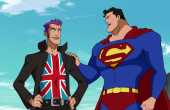
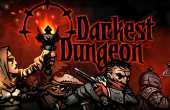
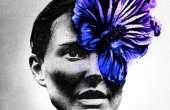


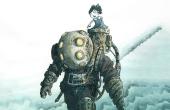
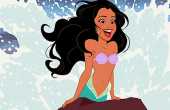
Now you have.